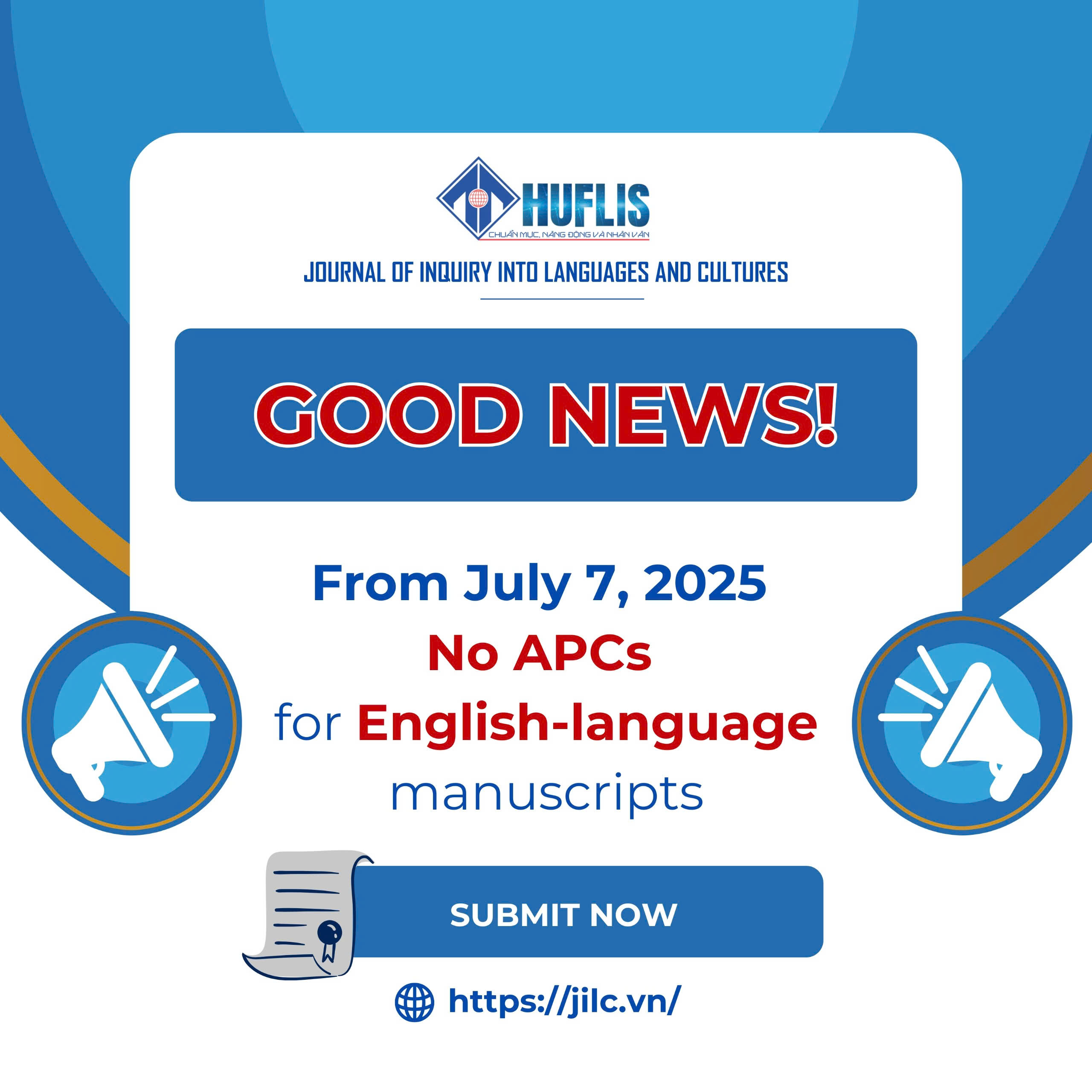HAPPY NEW YEAR 2026

As 2025 comes to a close, we...
REGULATIONS
On plagiarism control and handling at the Journal of Inquiry into Languages and Cultures
1. Plagiarism
Plagiarism is the unauthorized use of academic content (including sentences, paragraphs, research papers, data, figures, information and ideas) from other sources without proper citation or acknowledgement. Plagiarism constitutes a violation of research ethics and intellectual property laws.
2. Instances of plagiarism
- Plagiarism may take the following forms:
- Using data from other authors without citing the source.
- Providing inaccurate information about authorship or sources (e.g., Author A is mentioned as Author B; information from unpublished sources are referred to as published ones);
- Copying a substantial portion of another work (over 25% of the content), even with citation, or paraphrasing others’ work without proper citation.
- Translating others’ work from a foreign language into Vietnamese or vice versa without acknowledging the original source;
- Incorporating over 30 percent of one’s own published work into new publications by oneself or co-authors without citing the source, referred to as self-plagiarism.
- Using AI applications to generate part or all of an academic the entire or part of one’s work;
- Other forms of plagiarism specified by the law.
3. Basic requirements to avoid plagiarism
The manuscript submitted to the Journal of Inquiry into Languages and Cultures must be original, unpublished, and not under review by any other journals.
The manuscript content has to be of new research, not being copied or reused from other sources without citation;
Proper citation is required when using information from other authors, following the Submission Guidelines;
Authors must write in their own words and style, without copying or relying on AI-generated content.
The manuscript has to be checked for plagiarism prior official submission.
4. Identifying and handling plagiarism
- The Journal of Inquiry into Languages and Cultures employs plagiarism detection software to screen submissions. Manuscripts found to contain plagiarism will be handled according to the following levels of severity.
- Minor plagiarism (under 15% of the content is copied unintentionally): The author is required to revise the manuscript, add citations, and resubmit for review.
- Moderate plagiarism (15-30% similarity or copying ideas without citation): The manuscript is rejected. A revised version may be resubmitted, but it will undergo a new review process.
- Severe plagiarism (over 30% similarity or full duplication): The manuscript is rejected, and the author is added to the list of rejected submissions.
- Self-plagiarism: The article is rejected.
- Plagiarism detected after publication: The journal will retract the article and issue an official public notice regarding the withdrawal. The author’s violation will be noted in the journal’s records.
5. Effective date of implementation
These regulations take effect upon issuance and apply to all submissions to the Journal of Inquiry into Languages and Cultures.
By submitting a manuscript, authors agree to comply with these regulations.
Any inquiries or complaints regarding these regulations will be handled by the Editorial Board within its authority.

As 2025 comes to a close, we...

Pursuant to Decision No. 2411/QĐ-ĐHNN dated July 7, 2025, issued by the Rector of the University of...
Address: 57 Nguyen Khoa Chiem, Hue city
Publishing license No: 252/GP-BTTTT dated 26/7/2023 of the Ministry of Information and Communications
Editor-in-chief: Nguyen Ho Hoang Thuy
Tel: (+84) 234.3.830.722
Email: tapchinnvh@hueuni.edu.vn - tcngonnguvanhoa@gmail.com
